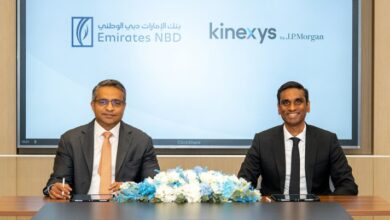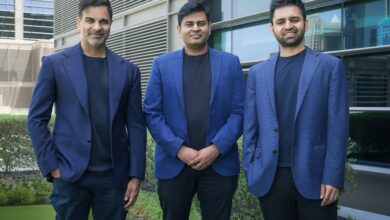MENA Governments Unleash Blockchain Use Cases in Oman, UAE, and KSA

Oman government to launch the Blockchain infrastructure platform across 21 Ministries
Emirate of Ajman to go live with Blockchain Land Department Use Case in February 2019
Deloitte working on huge public sector Blockchain implementation in UAE
During the UNLOCK Blockchain Forum Governmental Panel governmental officials and telecom operators as well as consultants such as Deloitte discussed how governments view blockchain and what use cases are being implemented.
Panelists in the session included Dr. Hesham Bin Abbas, Head of Saudi Arabia Blockchain Technology, Senior Consultant, Ministry of Communications &IT in the Kingdom of Saudi Arabia, Jihad Tayyara, Vice President ICT Business Development du Telecom, UAE, Dina Fares, Director of Digital Services, Ajman Digital Government, UAE, Dr. Khalid Tahhan, Chief Executive Officer, Blockchain Solutions& Services, Oman, and Ali Hashmi, Director Technology, Deloitte, UAE
When it comes to blockchain implementation Deloitte is currently involved in a huge governmental project in the UAE. Ali Hashmi stated, “There are two types of use cases that governments are implementing today, the first is what I like to call linear use cases which typically involve digitization of record keeping and then there are the digital transformation projects that hit the market place where the public and private sector intersects. Currently we are working on a large Blockchain public sector project where it will take on an evolutionary disruptive nature in a way that it disruptives over a trajectory and does not impact business as usual, leaving an end state where blockchain technology benefits are reaped, and this is what I like to call designing for adoption.”
In the Kingdom of Saudi Arabia for example, blockchain is being looked at as an emerging technology from a regulatory and economical perspective. According to Bin Abbas, “In the Kingdom we are currently developing the regulatory framework and as well as local capabilities in tandem to the development of use cases across the government and private sector. We understand that Blockchain can drive the national economy and contribute to national GDP (Gross Domestic Production).” As such the government is working with incubators, and accelerators to help build the startup community in KSA alongside local and international companies and investors.
In the UAE Telecom operator du has been a strong proponent of blockchain within its digital transformation strategy. Mr. Tayyara states, “We are helping organizations and governments such as Smart Dubai to transform. We implemented Dubai Pass with Smart Dubai and most recently we announced our Blockchain as a service platform to help increase adoption allowing entities to focus on customer deliverables rather than on the technology itself. The service will be launched in Q1 2019 and we have noticed that demand is big.”
Ajman Emirate has been one of the first Emirates in the UAE to implement a blockchain use case which will go live in February 2019. Fares stated, “As part of Ajman’s digital transformation plan we wanted to create a use case that would add efficiency and would actually solve a problem, we found that in the land and property ownership information was split between Ajman Municipality and Land Department so information and fines, as well as other information were scattered between two entities. Using blockchain this information becomes available seamlessly and this will help increase customer quality service, increase revenues and is a win-win for everyone. More partners from the private sector have been added to the project.” In addition there might be other uses cases. Fares explained, “Governments need to improve overall experience and customer journey. Maybe one of our next use cases will be in issuing trade licenses where for example today some licenses need 42 entities to approve.
As for the Sultanate of Oman, Dr. Khalid Tahhan explained, “ We started our initiative in November 2016, by establishing BSS a governmental technology company and blockchain club with two main focuses developing the knowledge based and innovative use cases. We have been working with SwissCom as our technical partner. This month we are deploying Blockchain permissioned network where trust is distributed across governmental entities and not under one custodian. When we created our first Blockchain symposium we had 21 Ministries in attendance, Blockchain infrastructure will be developed across all 21 Ministries but this does not necessarily mean we will have 21 use cases. We are looking into the use cases where immutability is the main value and benefit.”
Finally panelists gave their views on the future of government given how blockchain in essence disrupts the middleman. Hashmi states,” governments are using blockchain to create innovative ecosystem where digital transformation can take place with customer centricity in mind.”Jihad Tayarra, “governments in the way we view them today may not be the same as governments of the future and we see them today discussing their roles, and as such governments are becoming more progressive especially here in UAE. Governments will continue to exist but in different forms.”
According to Mr. Bin Abbas, “the role of government does not need to be in control of everything but rather to facilitate. Once governments ensure the regulatory framework is in place for blockchain use cases can flourish whereby we improve efficiencies and only intervene when things go wrong.”
In the end panelists agreed that for blockchain use cases to flourish in government sector, a strong technical knowhow needs to be in place, right use cases should be chosen, data integrity should be ensured, legislation and GDPR compliance should be developed and a strong buy in needs to be garnered from all concerned entities.





